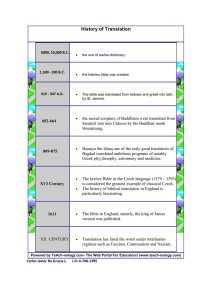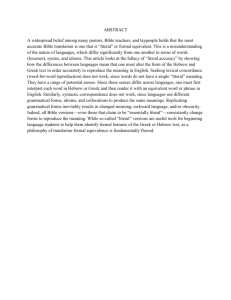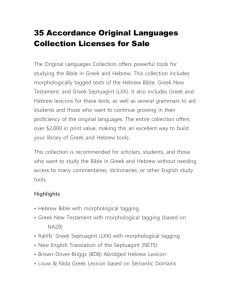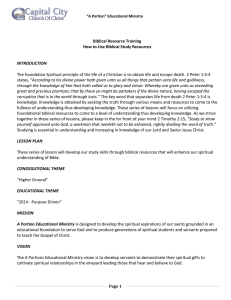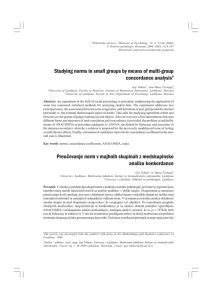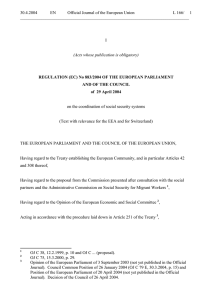YOUNG’S ANALYTICAL CONCORDANCE anyone
advertisement
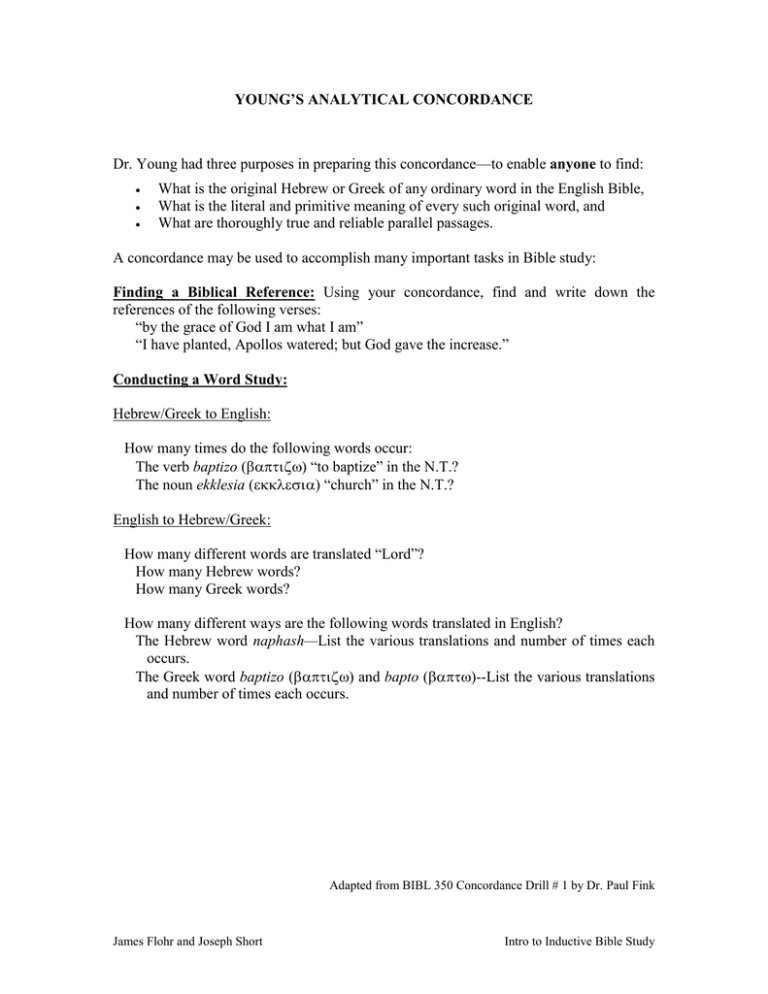
YOUNG’S ANALYTICAL CONCORDANCE Dr. Young had three purposes in preparing this concordance—to enable anyone to find: What is the original Hebrew or Greek of any ordinary word in the English Bible, What is the literal and primitive meaning of every such original word, and What are thoroughly true and reliable parallel passages. A concordance may be used to accomplish many important tasks in Bible study: Finding a Biblical Reference: Using your concordance, find and write down the references of the following verses: “by the grace of God I am what I am” “I have planted, Apollos watered; but God gave the increase.” Conducting a Word Study: Hebrew/Greek to English: How many times do the following words occur: The verb baptizo () “to baptize” in the N.T.? The noun ekklesia () “church” in the N.T.? English to Hebrew/Greek: How many different words are translated “Lord”? How many Hebrew words? How many Greek words? How many different ways are the following words translated in English? The Hebrew word naphash—List the various translations and number of times each occurs. The Greek word baptizo () and bapto ()--List the various translations and number of times each occurs. Adapted from BIBL 350 Concordance Drill # 1 by Dr. Paul Fink James Flohr and Joseph Short Intro to Inductive Bible Study WORD STUDY—John 21:15-17 Read John 21:15-17. In this passage there are two different Greek words, yet both have been translated by the single English word “love.” With the aid of your concordance, find out: 1) What word does Jesus use in His first two questions? ______________________ 2) What word does Jesus use in His third question? __________________________ 3) What word does Peter use in each of his answers? ______________________ The Holy Spirit does not use words flippantly. When different words with similar concepts are used, it is not by accident. When we see this, we must do our best to discern the importance of the different words used. a) What do you think is the difference in the concepts denoted by these two different words? (To get some idea, look up a number of the passages in which each word is used and try to get some appreciation of its peculiar meaning.) b) What significance do these words have in this passage? (In pondering this question, try to see how they help to explain Peter’s attitude in v. 17.) Adapted from BIBL 350 Concordance Drill # 2 by Dr. Paul Fink Lesson Preparation Hint: Bible study tools are the bones of your lesson. They are necessary for support, but remain unseen…and when they are, it’s not pretty. James Flohr and Joseph Short Intro to Inductive Bible Study
